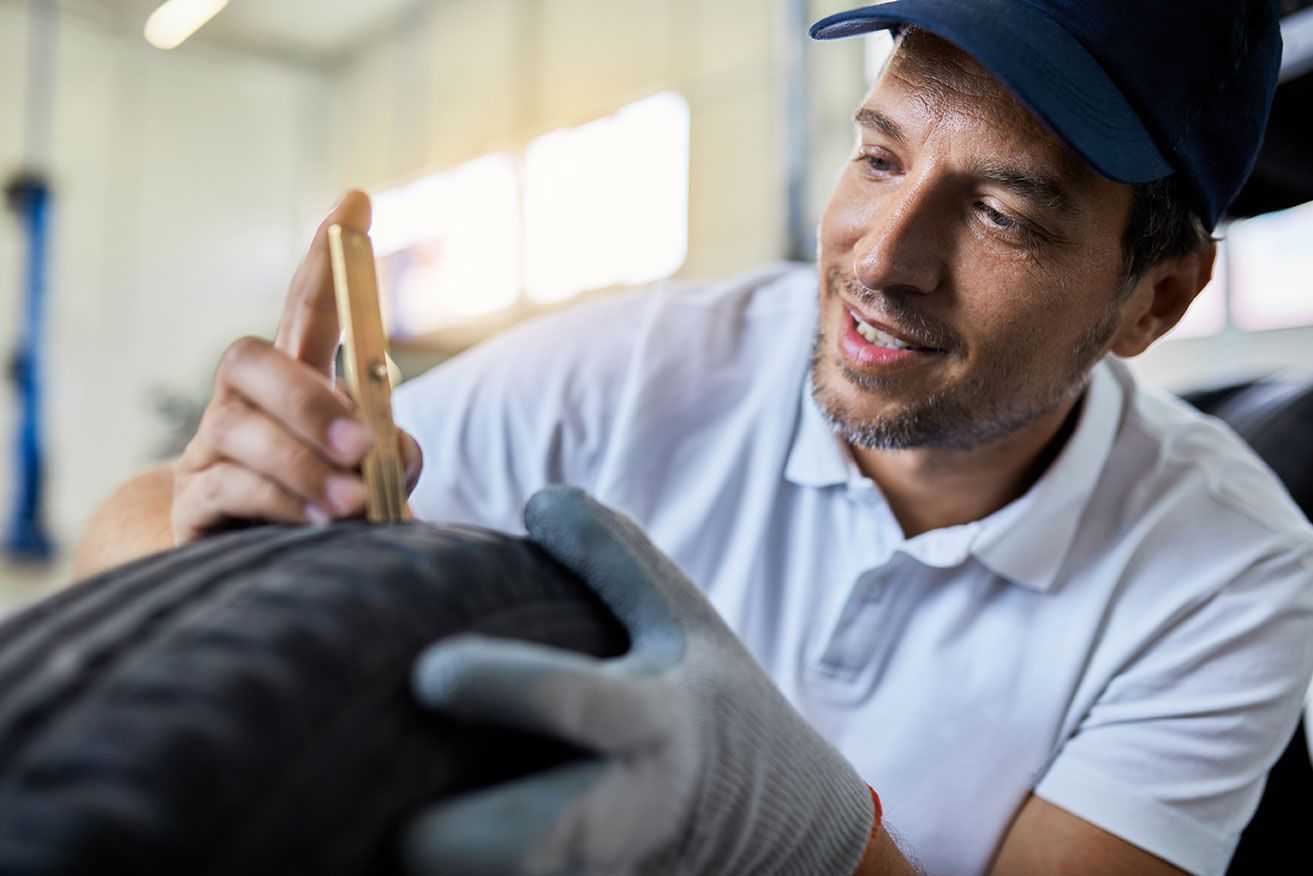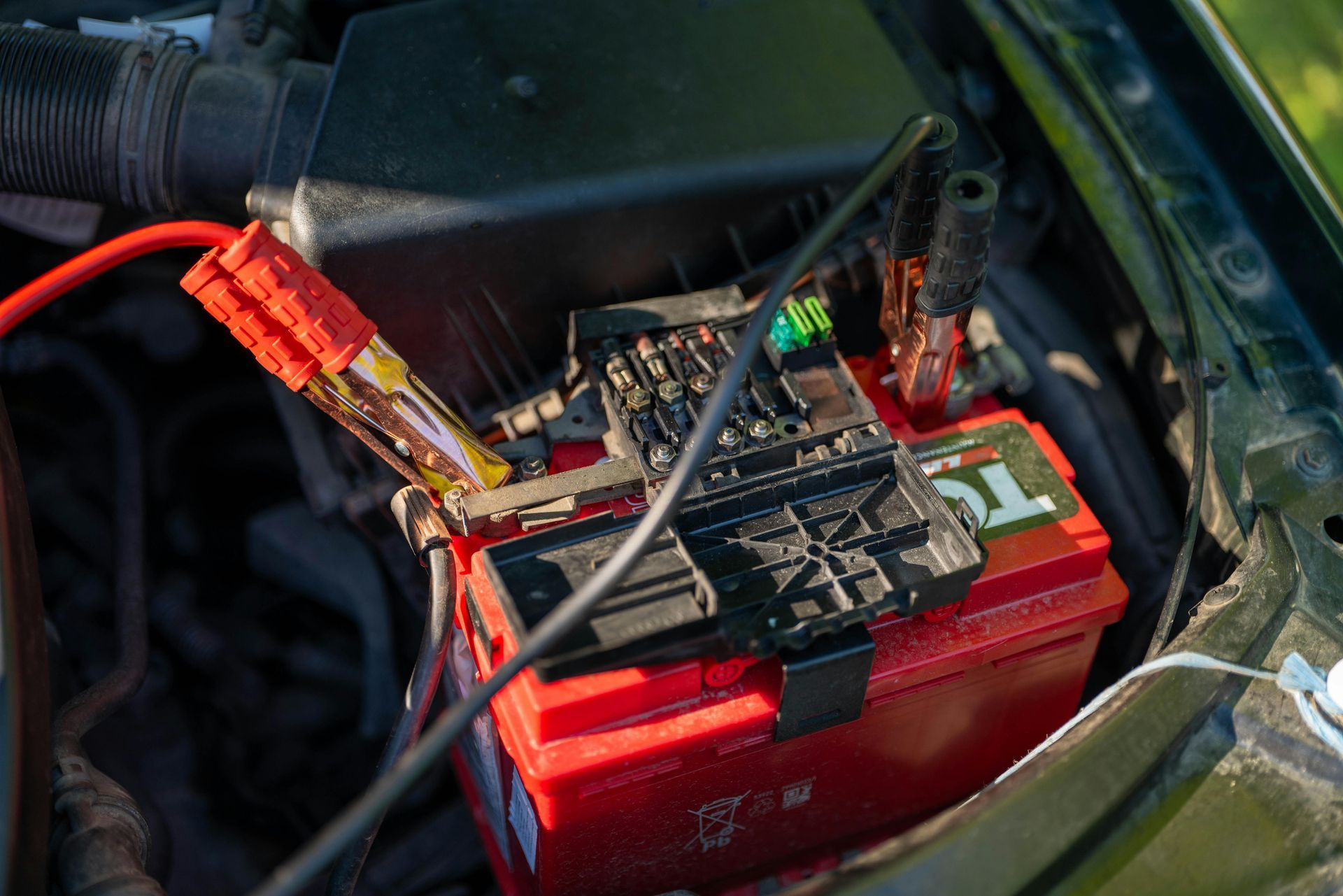10 Things You Should Do If You Don’t Drive Your Car Often
Auto Shops Located in: Chapel Hill, Durham, Taleigh, Apex, and Cary North Carolina

If you’re someone who doesn’t drive very often, you might think that you don’t need to worry about performing any maintenance. After all, you’re not driving it, so what could go wrong? Unfortunately, a car that sits unused for weeks on end can develop several issues, such as a dead battery, a rodent infestation, deflated tires, and low fluid levels.
As you try to keep your car in great shape, check out our top 10 tips for maintaining your vehicle while it’s parked for a long period of time.
1. Start the Engine Regularly
Even if you don’t plan on driving, you should still start your car every week or two. Doing so can help keep the battery charged and prevent mechanical parts from seizing up.
2. Check Tire Pressure
When your vehicle sits in the same place over an extended period of time, your tires might deflate. The reason for this deflation is usually because the full weight of the vehicle has been sitting on one portion of your tires for too long. Those who drive regularly won’t have this issue, as the tires will be in a different position every time you park. The part of the tire touching the ground can also become rigid if left too long, leading to flat spots on your tire.
Since a deflated tire can be dangerous to drive on, you’ll want to check the tire pressure monthly to prevent flat spots and ensure your tires are road-ready. You might also want to repark your vehicle every once in a while to ensure one section of the tire doesn’t have to take the full brunt of the vehicle’s weight for months on end.
3. Change the Oil
Automotive oil can break down over time, even if the car isn’t being driven. Regardless of how much you drive, you’ll want to stick to the manufacturer’s recommended oil change schedule to avoid engine issues. Most oil manufacturers recommend changing the oil every six months or every 3,000 miles, depending on which of them came first. Since you won’t be driving, you’ll need to change your oil every six months unless the manufacturer recommends a shorter or longer interval.
4. Keep the Battery Charged
If you don’t drive for long periods, your battery will probably be dead when you try to drive your vehicle again. Since vehicle batteries charge while you drive, leaving your vehicle stationary for weeks doesn’t give your battery a chance to recharge.
To prevent your battery from draining while it’s not in use, consider using a smart trickle charger that will shut off after the battery is fully charged. You can also disconnect the battery to prevent it from completely draining if you plan not to drive for a long time.
5. Protect Your Tires from the Sun
Exposure to direct sunlight can cause tires to crack. If you’ve parked in an area where your tires get a lot of direct sunlight, the sun’s UV rays will break down your tires’ rubber compounds. Instead of parking in direct sunlight, try to park in a garage or somewhere with shade. You can also use a vehicle cover to shield your tires from UV damage.
6. Top Off Fluids
Over time, your vehicle’s essential fluids will evaporate or become contaminated. If you don’t top them off and they evaporate entirely, the empty tanks they’re stored in can begin to rust. When you’re not driving, take the time to top off your brake fluid, power steering fluid, windshield washer fluid, transmission fluid, radiator fluid, and coolant at the recommended manufacturer intervals.
7. Clean Your Car Inside and Out
Even when parked, dirt and debris can damage your car’s exterior and interior. Cleaning the interior of your car every couple of weeks can stop dust from building up and ensure you don’t have any foods hidden under seats that could attract pests. Additionally, regularly cleaning the interior helps protect your vehicle’s upholstery.
Alongside cleaning the interior, you’ll want to wash the exterior. If you’re parked outside, bird droppings, pollen, bugs, and tree sap can all harm your vehicle’s paint job. You can also apply wax to the vehicle’s exterior to better protect your paint from debris and UV rays. Typically, it’s a good idea to wash your vehicle’s exterior every couple of weeks to prevent damage to the paint.
8. Park in a Covered or Shaded Area
Rain, snow, and UV rays can all damage your vehicle’s exterior, especially when you’re parked in an area open to the elements. If possible, store your car in a garage or under a cover to protect it. You’ll also want to avoid parking under trees, as it raises the risk that tree sap and bird droppings get on your vehicle.
9. Drive It Occasionally
Like the recommendation to turn your vehicle on every one to two weeks, it’s best practice to drive your vehicle for 20-30 minutes every few weeks. By driving your car, you’ll keep all systems functioning properly, like the brakes and air conditioning, and you’ll circulate fluids throughout the engine. Driving occasionally also gives your battery time to recharge and prevents dead batteries.
10. Check for Pests
If your car is parked for a while, pests may try to make it their home. Whether it’s a family of rodents living in your trunk, ants eating food underneath your seats, or wasps that have built a hive under your hood, you don’t want to start driving and realize pests are scurrying about. Before you drive your vehicle, check for any signs of critters under the hood or inside the cabin.
Choose Chapel Hill Tire for Vehicle Repairs and Maintenance in the Triangle
If your car is having problems after you’ve not driven it for some time and you need a vehicle inspection in Raleigh, Durham, Chapel Hill, or the surrounding areas, Chapel Hill Tire can help. Our team of certified technicians can fully inspect your vehicle and pinpoint the source of any issue your vehicle is experiencing. Whether you need your tires refilled, a new battery, or a thorough cleaning, we’ll perform whatever service you need quickly and professionally. We also recommend checking out our coupons to see how much you can save!
Learn more about our automotive repair services today. If you need maintenance or repairs, please make an appointment at one of our convenient locations in the Triangle area.















